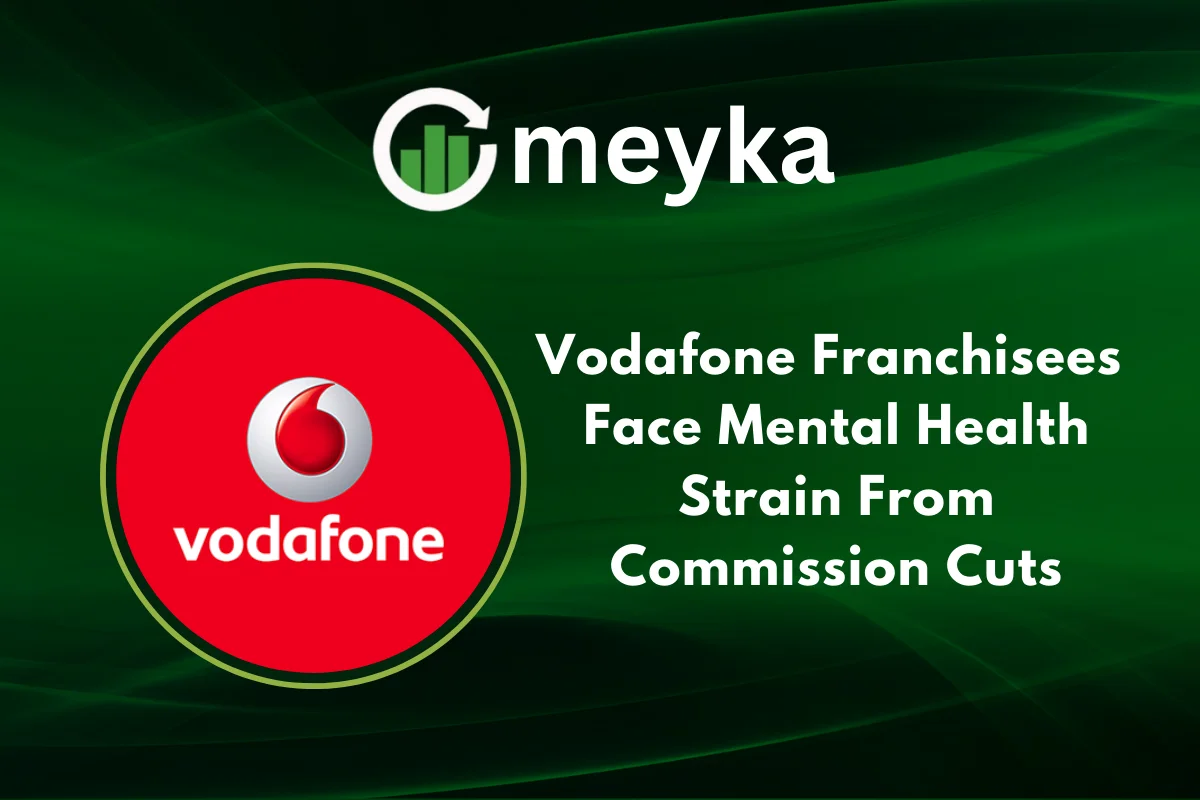Vodafone Franchisees Face Mental Health Strain From Commission Cuts
The telecom industry has long been an anchor for communication, connectivity, and digital progress. Yet beneath the surface, a troubling issue is emerging. Vodafone franchisees across the United Kingdom are voicing deep concerns about their mental health following a wave of commission cuts. Reduced earnings are not only affecting their financial stability but also taking a toll on their personal well-being.
This development is not just about business. It is about the people behind the counters, the local entrepreneurs who represent one of the largest telecom brands, and the stress they endure when corporate policies change.
Commission Cuts and the Reality for Vodafone Franchisees
Vodafone has been undergoing strategic shifts in its retail model. As more customers move to online purchases and self-service platforms, the reliance on physical stores has weakened. To adjust, Vodafone reduced commissions paid to franchisees, a decision that many believe threatens the very survival of small operators.
For Vodafone franchisees, these cuts mean lower revenue despite continuing to face fixed costs like rent, staff wages, and utilities. Many franchise owners claim they now work longer hours just to keep stores open, often sacrificing personal time and well-being.
This financial strain has become a leading cause of mental stress among franchisees. Anxiety about paying bills, meeting sales targets, and keeping their staff employed has compounded, leaving many feeling isolated and unsupported.
The Human Cost of Business Decisions
While corporate strategy often focuses on profitability, the human cost is rarely spotlighted. Behind each Vodafone-branded storefront is a business owner who invested savings, energy, and trust in the franchise model.
Commission reductions are not only limiting profit margins but are also leaving franchisees questioning their future. Several franchise operators have shared that they face sleepless nights, stress-induced health problems, and feelings of hopelessness about staying afloat.
Research shows a direct link between financial insecurity and deteriorating mental health. According to the UK’s Mental Health Foundation, individuals under financial pressure are more likely to suffer from depression, anxiety, and burnout. In the case of Vodafone franchisees, this pattern is increasingly visible.
Impact on Customer Experience
The ripple effects extend beyond the franchise owners themselves. Staff morale inside stores has declined, which directly affects customer service. Franchisees struggling with reduced commissions often cut costs by reducing staff hours or avoiding necessary store upgrades.
This creates a weaker customer experience, where customers wait longer for support, have fewer product demonstrations, and interact with staff under high stress. In the long run, this could undermine Vodafone’s brand image, despite short-term savings.
Mental Health Awareness in the Corporate World
The strain on Vodafone franchisees highlights the growing importance of mental health awareness in business. Employers and corporations have increasingly been called upon to support the mental well-being of workers and partners.
Telecom competitors, as well as companies in industries like retail and finance, are being watched closely for how they handle similar situations. As mental health discussions become more mainstream, businesses ignoring these challenges risk reputational damage.
Vodafone’s decision comes at a time when workplace stress is already rising globally. The World Health Organization (WHO) has emphasized that untreated stress and anxiety are among the leading causes of lost productivity worldwide. By neglecting the emotional well-being of their franchise partners, corporations run the risk of not only damaging lives but also harming long-term performance.
Franchisees Call for Support and Transparency
Franchisees are calling for greater transparency in how commission cuts are calculated and for meaningful support from Vodafone. Many believe that corporate headquarters should provide assistance programs, mental health resources, or even financial relief to help franchises transition into new business realities.
There is also a demand for clear communication. Some franchisees argue that the lack of consultation before policy changes has worsened their anxiety. Being included in the decision-making process would not only ease stress but could also lead to more sustainable solutions.
Financial Pressure Meets Stock Market Realities
While franchisees face mounting challenges, Vodafone, as a corporation, is balancing investor expectations. The global telecom market is increasingly shaped by competition, technological investment, and pressure to perform in the stock market.
Investors often track major telecoms alongside trending opportunities like AI stocks and technology-driven firms. Vodafone’s restructuring may be aimed at streamlining costs to present a stronger financial profile in stock research reports. However, critics argue that short-term market gains should not come at the expense of the mental well-being of those running the company’s retail front lines.
Balancing shareholder interests with the welfare of franchisees remains one of Vodafone’s most pressing challenges.
The Path Forward: Building a Sustainable Franchise Model
To repair relationships and restore trust, Vodafone will need to rethink its franchise strategy. A sustainable model would include:
- Fairer commission structures that allow franchisees to remain profitable.
- Mental health support programs to ensure owners and staff are not left to cope alone.
- Collaborative decision-making, where franchise partners are included in discussions before drastic changes are implemented.
- Investment in hybrid retail models, combining digital growth with local store strength.
These measures would not only protect the well-being of franchisees but also strengthen Vodafone’s reputation as a responsible global brand.
Conclusion
The story of Vodafone franchisees facing mental health struggles due to commission cuts is a reminder that business decisions carry human consequences. Behind every store are hardworking individuals navigating both financial pressures and emotional burdens. If left unaddressed, this strain could harm not just franchisees but also the wider Vodafone brand and its customer base.
Corporate responsibility today goes beyond financial performance. It includes safeguarding the mental and emotional health of everyone connected to the brand. As the conversation on mental health grows stronger, Vodafone and other global corporations must adapt to meet this urgent need.
FAQs
Vodafone franchisees are facing reduced commissions, which have lowered their earnings while they continue to handle fixed costs like rent and staff salaries.
Reduced income leads to financial insecurity, which often triggers stress, anxiety, and burnout among franchisees trying to keep their businesses afloat.
Yes, by creating fairer commission models, providing mental health support programs, and involving franchisees in decision-making, Vodafone can reduce strain and improve outcomes.
Disclaimer:
This content is made for learning only. It is not meant to give financial advice. Always check the facts yourself. Financial decisions need detailed research.






